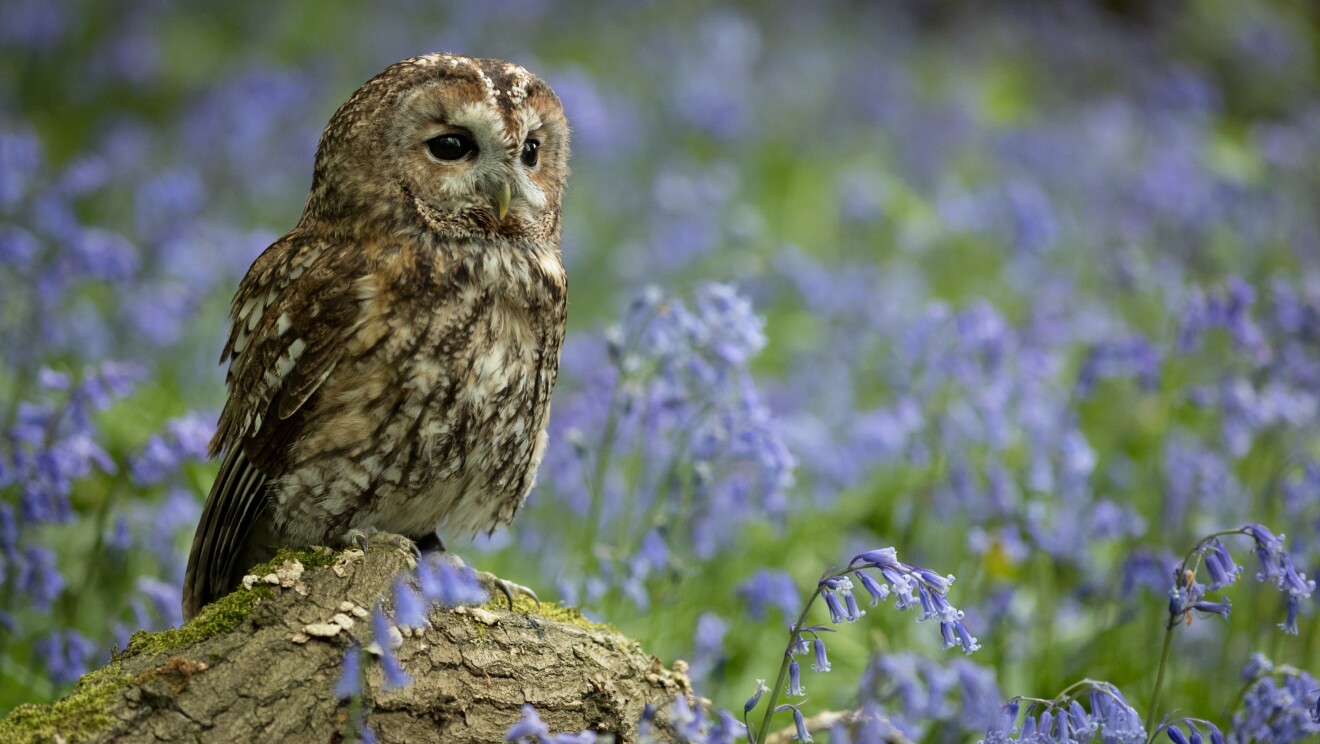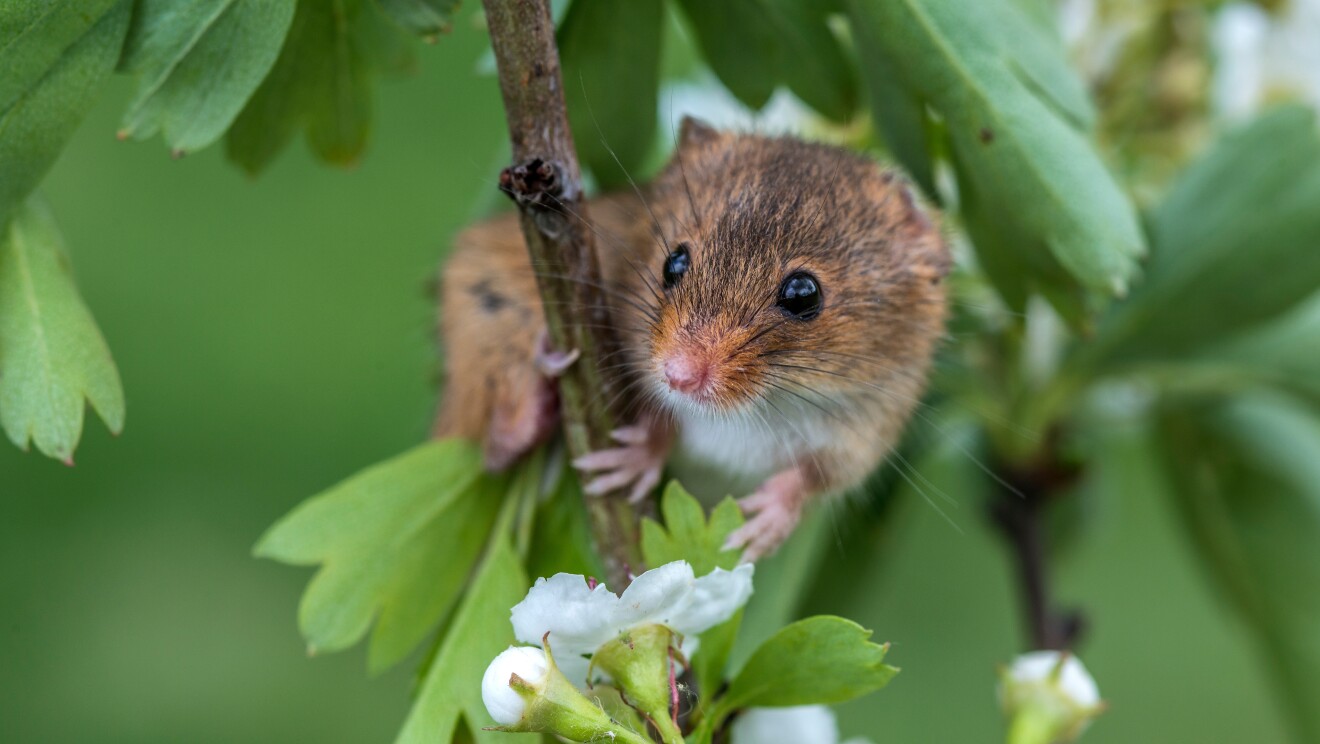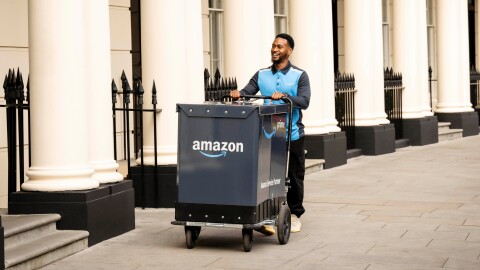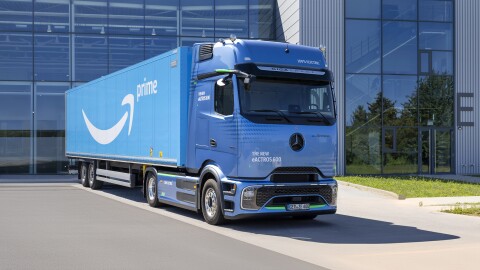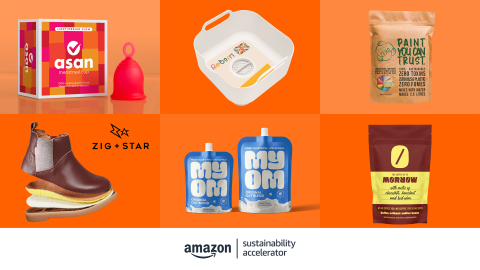Rewilding projects across the capital, including a reintroduction of beavers to West London and the creation and restoration of habitats to boost declining populations of species such as harvest mice and bees, have been selected for grants from the Rewild London Fund.
Led by the Mayor of London in partnership with London Wildlife Trust, the Rewild London Fund opened for applications in October 2022 after a £750,000 commitment from Amazon’s Right Now Climate Fund.
These projects will provide a much-needed boost to biodiversity in the city, while new woodlands, wetlands, ponds and meadows aim to increase resilience to the effects of climate change.
Altogether, the 22 London rewilding projects will enable over 100 hectares of priority habitat to be restored or created (the equivalent of more than 160 football pitches). Enhancing or connecting London’s Sites of Importance for Nature Conservation (SINCs), these funded projects focus on London’s core wildlife network - making the city a more natural and vibrant home for nature and the local community.
“These projects will provide a much-needed boost to biodiversity in the city, while new woodlands, wetlands, ponds and meadows aim to increase resilience to the effects of climate change. For Londoners, these projects offer a vital way to discover and reconnect with nature”, said Zak Watts, Director, EU Sustainability, Amazon.
“This is all part of a wider commitment through Amazon’s Right Now Climate Fund, as we invest in ways to accelerate nature’s recovery in communities where we live and work. We’re excited to see the positive results they bring.”
Rewilding alllows nature to take the lead and is an exciting way to create healthier ecosystems and allow humans and wildlife to live together more harmoniously.
“We are now facing dual climate and ecological emergencies worldwide, which further threaten our ability to survive on our planet”, said Sadiq Khan, Mayor of London.
“Despite the harm inflicted on the natural world, we have the power to make amends, and I am committed to ensuring that London is at the vanguard of efforts to reverse the trends of declining biodiversity and the destruction of nature. Rewilding allows nature to take the lead and is an exciting way to create healthier ecosystems and allow humans and wildlife to live together more harmoniously. I'm proud that London is leading the way once again and excited to see what can be achieved with this further £1 million funding. We're cleaning up our city, re-establishing lost species and reconnecting people and nature as we build a greener, fairer city for all Londoners."
“London Wildlife Trust is pleased to have partnered with the Mayor of London and Amazon to both set the ambitions of the Fund and select the successful projects," said Mathew Frith, Director of Research and Policy at London Wildlife Trust.
“They will help strengthen, enhance and extend the important network of over 1600 wildlife sites that forms the foundations of nature conservation in London. We look forward to overseeing the delivery of these which should raise the bar for the critical restoration of priority wildlife habitats and the recovery of populations of species, from harvest mouse to tawny owl, and bumblebees to beetles, to make London a better place for nature, which people can experience close to hand.”
Bringing back beavers to Ealing
Among the projects receiving funding is an initiative, involving Citizen Zoo, alongside Ealing Wildlife Group, Ealing Council and Friends of Horsenden Hill, to bring beavers back to West London.
The chosen site in Ealing will be transformed into a flourishing and immersive wetland, creating a biodiverse ecosystem for plants and animals. Rewild Funding will help drive the project forward through physical preparation of the chosen site, baseline surveys and establishing monitoring activity. Additionally, a new role will be recruited to manage the project and continue engagement with the local community.
Improving London’s Waterways
A number of projects across the capital are set to improve London’s waterways – for both local communities and the wildlife that live in them.
In the London Borough of Harrow, the Yeading Brook Unbound project, part of the Crane Valley Partnership and in collaboration with local groups and volunteers, will make lasting changes to the Brook, its margins and surrounding areas.
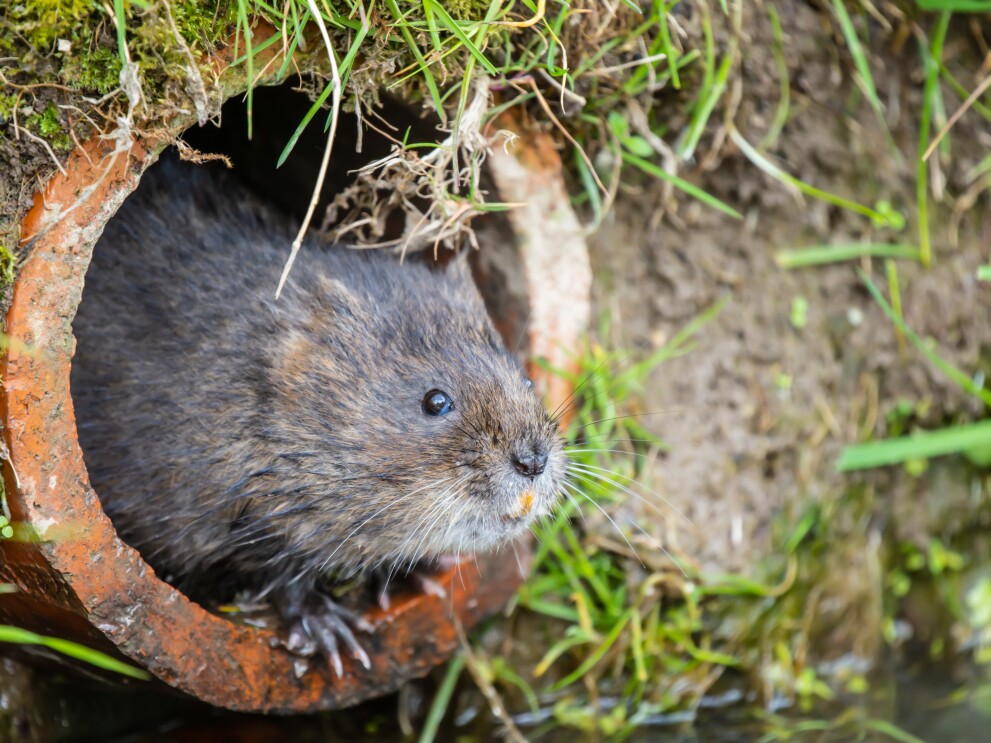
Projects in East London include improving habitat, flow and undertaking water quality monitoring of the Old Lea River in the London Borough of Hackney. In the south west of the city, a 1.25km corridor of Richmond’s Palewell Beverley Brook is also being improved. Restoration works will encourage natural processes along the waterway and improve habitat for insects, fish, bats and birds, while increasing connectivity between nearby nature reserves.
A cross-London project will also deliver the essential first steps towards recovering the capital’s water vole populations, aiming to benefit all river corridor Sites of Importance for Nature Conservation in London.
Rewilding in the City of London
It’s not just London’s traditionally greener areas that will see new initiatives as part of the programme.
The City of London’s Wilding City Gardens programme will also promote biodiversity in the heart of the capital with the creation of priority habitats, such as species-rich meadows, and standing water features.
Amazon’s Right Now Climate Fund
Amazon is a co-founder of and the first signatory to The Climate Pledge, a commitment to reach net-zero carbon by 2040.
The Rewild London Fund is one of the first UK projects receiving support through Amazon’s $100 million Right Now Climate Fund. With €20 million committed to projects across the UK and Europe, the fund has been set up to conserve, restore and improve forests, wetlands and grasslands, protecting wildlife habitats, biodiversity and quality of life for communities, in addition to the work the company is doing to decarbonise its business.
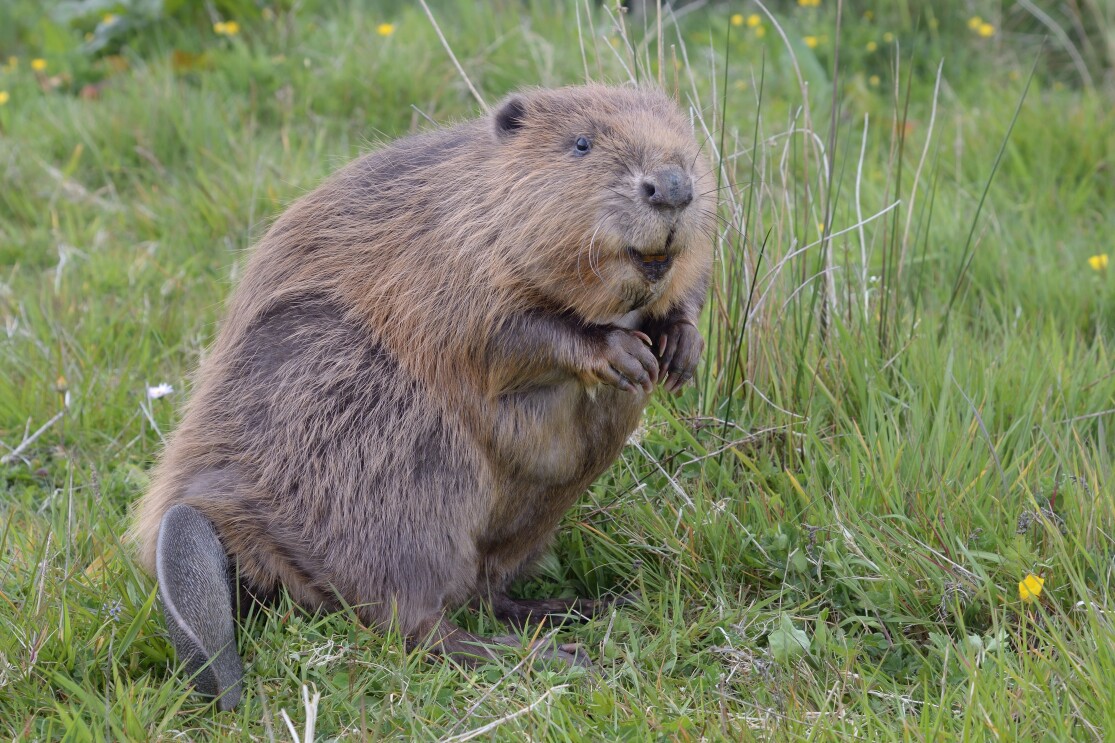
In October 2022, Amazon also announced a separate commitment of £2.1 million to The Woodland Trust’s Emergency Tree Fund which will help plant over 450,000 trees across six UK local authorities.
A full list of each of the projects receiving grant funding from Rewild London can be found here:
- Bringing Back Beavers to Ealing - Citizen Zoo, alongside Ealing Wildlife Group, Ealing Council and Friends of Horsenden Hill is reintroducing beavers to West London after a 400-year absence. The chosen site in Ealing will be transformed into a flourishing and immersive wetland, creating a biodiverse ecosystem for plants and animals
- Harvest Mouse reintroduction project: the project will create new and improved habitats for harvest mice at Perivale Wood, into which harvest mice will be reintroduced. The project will also create wildlife corridors linking to the existing population at Horsenden Hill.
- London Water Vole Recovery: led by the Zoological Society of London, this project will complete the essential first step towards recovering water vole and managing mink in London. The aim is to benefit all river corridor Sites of Importance for Nature Conservation in London.
- Thamesmead Pollinator Corridor, Bexley: this project aims to boost numbers of the rare shrill carder bee and other pollinator species by increasing the abundance and diversity of forage plants and nesting sites. This is a partnership project between North West Kent Countryside Partnership, The Ridgeway Users Group, University Of East London, Bow Arts and Bumblebee Conservation Trust.
- Old Lea River Restoration Project, London Borough of Hackney: this restoration project seeks to bring the Old Lea back to health - improving habitat and flow with native species planting, the removal of invasive non-native species, installing in-channel large woody debris and undertaking water quality monitoring. This project is being created and delivered by the Wildlife Gardeners of Haggerston in partnership with Hackney Council.
- Yeading Brook Unbound, London Borough of Harrow: this large-scale project will make lasting changes to the Brook, its margins and adjoining areas within Sites of Importance for Nature Conservation, parks and neighbouring allotments along its course. It is being delivered by Harrow Council, as part of the Crane Valley Partnership and in collaboration with local groups and volunteers.
- Palewell Beverley Brook Restoration, London Boroughs of Richmond and Wandsworth: led by Barnes Conservation, part of Barnes Common Limited, this project aims to create a diverse mix of flow types, depths, velocities, widths, and cover in a 1.25km stretch of the brook. This will create the array of niches that are needed to encourage a more diverse and complex composition of plants and animals to colonise and establish.
- Forster Park Ancient Woodland restoration project, London Borough of Lewisham: the project aims to restore and maximise the ecological integrity and resilience of the ancient woodland areas in Forster Park.
- The Green Line - Nature's Railway, Hedgelaying and Orchard Restoration, London Borough of Lewisham: through orchard restoration and hedgerow creation, this project aims to sustain and boost wildlife including the stag beetle, tawny owl, slow worm and bat populations, while improving the environment for the school children and public who visit it daily. The project is led by the Fourth Reserve Foundation.
- Richmond Corridors: this project from the London Borough of Richmond Upon Thames will strengthen environmental links between Sites of Importance for Nature Conservation in Hampton and build environmental resilience. The project will enhance habitats, including meadows and ponds and better link the ecological network and corridors.
- Restoring the Commons Wetlands: Ponds and Reedbeds: the Wimbledon and Putney Commons Conservators will deliver the survey and design phase of restoring Queensmere, one of the Common’s largest ponds, which is far from reaching its full potential for wildlife. The funding will help to design reedbed habitat, ensuring the pond and surrounding landscape is more resilient and support increased biodiversity.
- Wilding City Gardens: City of London will create species-rich meadows and standing water features.
- King’s Oak Wetlands: The London Borough of Enfield plans to create four natural flood management ponds in this rural area of the borough.
- Breathing Life Back into the Hogsmill Wood: led by the Royal Borough of Kingston, project activities will include producing a restoration plan for the site and running woodland management sessions for volunteers. The long-term aim is to establish safe access to the site to enable it to be used by groups such as local forest schools.
- Beckton Meadow, London Borough of Newham: a species-rich wildflower meadow will be created in the heart of the park.
- Greening the Wapping Canal: led by London Borough of Tower Hamlets, this project will install eleven floating rafts with mixed native wetland vegetation along a 220 metre stretch of the canal - forming habitat and shelter for small fish and aquatic invertebrates.
- Rewild Brockwell North, London Borough of Lambeth: will include creating a new wildflower and grass meadow with banks and rain ponds, planting a belt of trees and native shrubs including a native hedge and damp woodland and trial improvements to the lake margins.
- Improving Biodiversity in Dulwich Woods, London Borough of Southwark: led by The Dulwich Estate, this project focuses on allowing a variety of woodland species to regrow in trampled and damaged areas of Dulwich Wood. Planned activities include the renewal of footpaths, creation of mixed native hedgerows of oak, hawthorn, hazel, hornbeam, and holly and wildflower planting on grass verges to connect sites.
- The Chase Local Nature Reserve Wetland Restoration Phase 2, London Borough of Barking & Dagenham: the project will make further habitat enhancements at the reserve. Works will include the creation of more reedbed habitat, while water levels will be managed and work undertaken to manage invasive species.
- London Borough of Ealing SINC Meadow Improvements: this project will improve and expand a significant area of native wildflower meadows by addressing historic scrub encroachment and subsequent wildflower seed-sowing (including Yellow Rattle).
- Rewilding The Grove, London Borough of Hillingdon: this old Victorian garden is now a site of increasing value for wildlife, with a central wet meadow feature. The project will pollard the mature trees next to the pond, restore/desilt the existing ponds, as well as plant wetland plants. This will provide a restored wetland area for amphibians and aquatic invertebrates and appropriate planting with native wetland species will improve the overall biodiversity.
- Rewilding for Reptiles, Barking and Dagenham: a programme led by The Land Restoration Trust will identify reptile and amphibian populations and where there is potential to increase populations, to carry out targeted habitat works.
Find out more about our commitment to sustainability.


